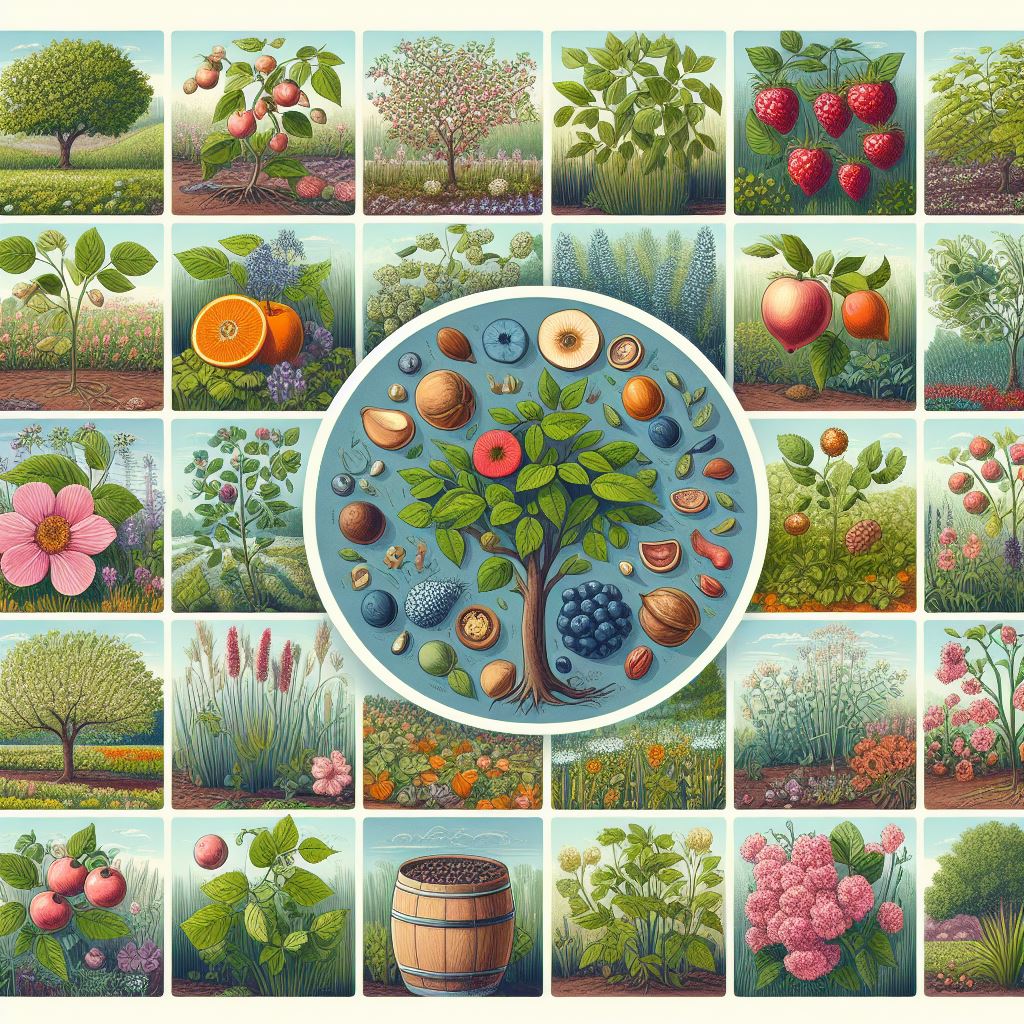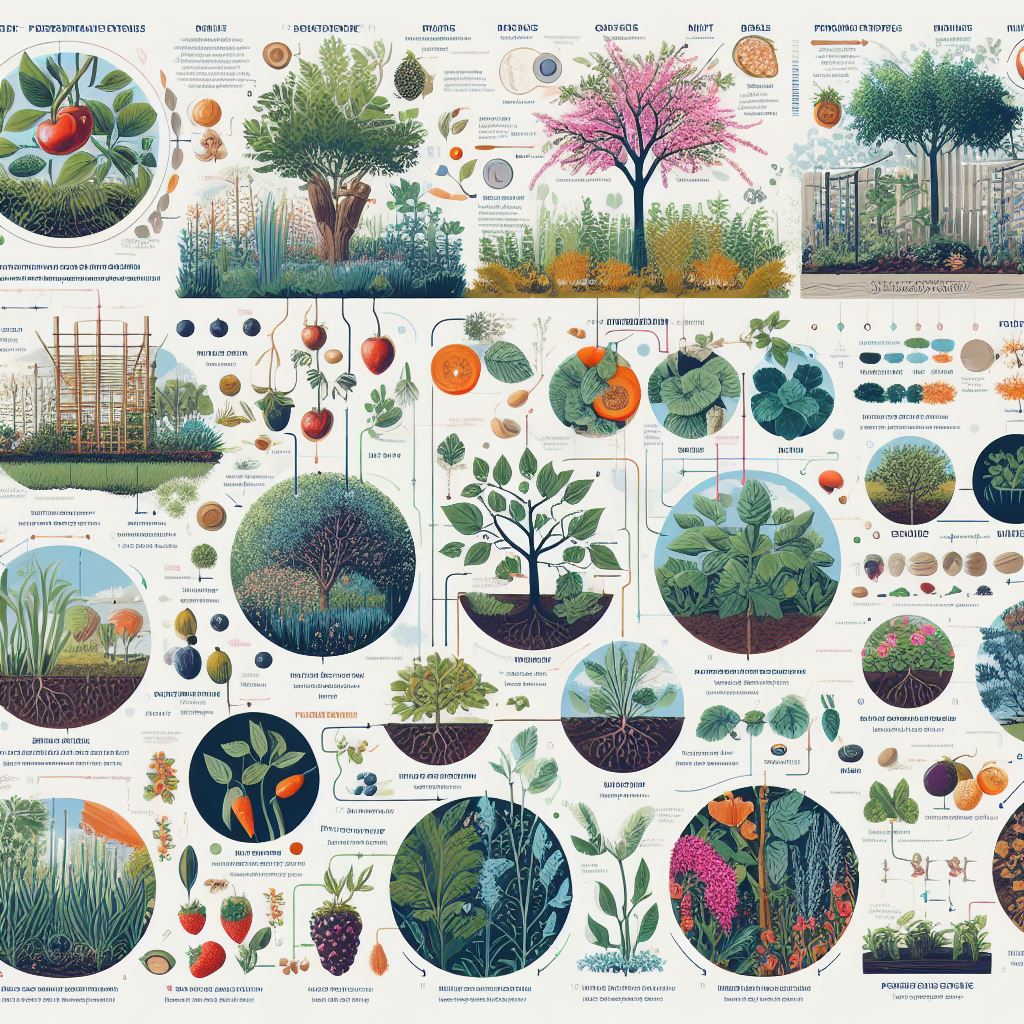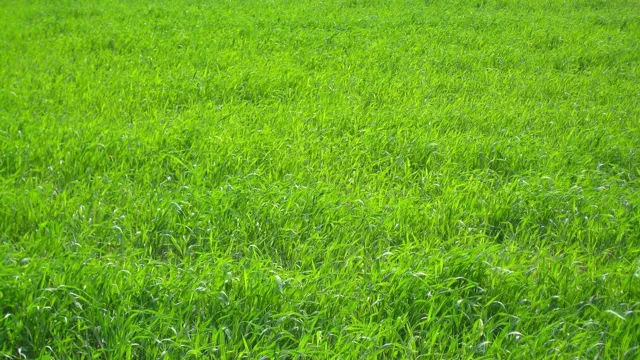In the ever-evolving agricultural landscape, the integration of perennial crops presents a remarkable solution to sustainable farming. As the world grapples with climate change, soil degradation, and a growing population, the quest for sustainable and efficient agricultural practices has never been more critical. This blog will delve into the world of perennial crop integrators, exploring their potential benefits, challenges, and their increasing importance in the future of farming.
These undervalued heroes of the agricultural world offer promising solutions to some of the most pressing environmental and food security issues we face today. Dive in with us, as we unearth the potential that lies beneath these deep-rooted, high-yielding, and eco-friendly crop systems.

Introduction to Perennial Crops
Perennial Crops: A Sustainable Future Enhanced by Integrators Agriculture has been the backbone of human civilization, nurturing and nourishing societies since time immemorial. In the realm of agriculture, the concept of perennial crops stands out as a beacon of sustainability and ecological harmony. These crops, unlike their annual counterparts, don’t need to be replanted every year, which makes them an environmentally friendly choice.
They help replenish soil nutrients, reduce erosion, and foster biodiversity, all while lessening the burden on farmers. Now, let’s delve into the role of perennial crop integrators. These are the innovative systems or strategies that aim to optimize the growth of perennial crops by integrating them into existing agricultural systems or landscapes.
They can be a game-changer in our quest for sustainable farming. Perennial crop integrators can include techniques such as agroforestry, where trees are grown alongside crops, or intercropping, where different crops are grown in proximity to benefit from each other’s presence. These integrators not only help increase the yield and resilience of the crops but also contribute to a more diverse and sustainable agricultural ecosystem.
In essence, the introduction of perennial crops and integrators into the agricultural narrative is indicative of a paradigm shift towards more sustainable and resilient farming practices. A change that is not just beneficial but necessary for the health of our planet and future generations. With the right knowledge and tools at our disposal, we can hope to see a world where agriculture is in harmony with nature, rather than against it.

What are Perennial Crops?
Perennial crop integrators are the unsung heroes in sustainable agriculture. They refer to the plants that, unlike annuals, do not need to be replanted each year. Perennial crops, such as fruit trees, berries, and certain vegetables, have the ability to regenerate themselves, offering a continual yield.
These resilient plants not only reduce the effort and resources in cultivation but also play a significant role in soil preservation. The incorporation of perennial crop integrators into agricultural systems opens up a world of possibilities for sustainable and efficient farming practices.

Benefits of Perennial Crops
Perennial crop integrators play an essential role in creating sustainable agricultural ecosystems. They offer substantial benefits that significantly improve soil health, biodiversity, and carbon sequestration. Their deep roots reduce soil erosion, enhance nutrient cycling, and improve water-holding capacity, thereby reducing the need for synthetic fertilizers and irrigation.
Additionally, the longer lifespan and lower maintenance requirements of perennial crops mean fewer replanting costs for farmers. With an ability to adapt and thrive in diverse climates, perennial crops also foster biodiversity, providing habitats for beneficial insects and wildlife. Lastly, their capacity to sequester more carbon than annual crops makes them a key ally in the fight against climate change.
Perennial Crop Integration
Perennial Crop Integration: A Sustainable Approach to Agriculture When we talk about sustainable farming, perennial crop integration is an innovative and efficient method that is gaining traction within the agricultural industry. For those unfamiliar with the concept, perennial crop integrators are the heroes of sustainable agriculture. They are the plants that offer us a long-term relationship, unlike the fleeting, seasonal flings we have with annual crops.
Perennial crops are the stalwarts of the plant kingdom. With deep-rooted perseverance, these plants persist year after year, providing continual harvests while maintaining soil health and reducing the need for chemical inputs. They create a symbiotic relationship with the environment, offering protective ground cover to conserve water, increase biodiversity, and sequester carbon from the atmosphere.
The integration of perennial crops into farming systems isn’t just about growing food. It’s about cultivating resilience, promoting biodiversity, and ensuring the sustainability of our agricultural practices. By adopting perennial crop integrators into our farming systems, we are not just sowing seeds, but also reaping the benefits of a healthier planet.
In the grand scheme of things, perennial crop integration is an investment in the future of farming and food security. With their deep roots and longevity, these plants are the embodiment of sustainability, showing us a way forward that is not only productive but also ecologically responsible. So, let’s give a round of applause to the perennial crop integrators, the unsung heroes of sustainable agriculture.
Their contribution to the health of our planet and the sustainability of our food systems is invaluable. For any farmer or gardener looking to make a positive impact, embracing perennial crop integration is a step worth considering.
Understanding Crop Integration
Perennial crop integrators are the unsung heroes in the world of sustainable agriculture, playing a crucial role in enhancing overall productivity and biodiversity. These devoted plants, with their year-round growth, reduce soil erosion, increase carbon sequestration, and provide a habitat for beneficial organisms. But they’re not just eco-warriors; they’re also profit maximizers, providing consistent yields and reducing the need for costly replanting.
So, while they may not get the spotlight, perennial crop integrators are working tirelessly behind the scenes, cultivating a greener, more prosperous future. It’s high time we appreciate these ecological and economic powerhouses for the role they play in our agricultural systems.
Role of Perennial Crops in Integration
Perennial crop integrators play a pivotal role in the agricultural ecosystem by enhancing biodiversity, improving soil health, and aiding climate change mitigation. These evergreen cultivars, with their ability to grow year after year, are key players in the sustainability game. They form an integral part of agroforestry systems, acting as a bridge between annual crops and forest species, ensuring the continuous flow of nutrients and fostering symbiotic relationships among various organisms.
The integration of perennial crops not only boosts agricultural productivity but also ensures ecological balance, emerging as the unsung heroes of sustainable agriculture.
Examples of Successful Integration
“Perennial Crop Integrators: A Symphony of Success Stories” The world of agriculture has seen a fascinating evolution, with perennial crop integrators playing a key role. Their success stories are akin to symphonies, each note strung perfectly to create a harmonious outcome. These integrators have adeptly woven the perennial crops into the fabric of the land, ensuring a sustainable and productive yield.
From coffee plantations utilizing shade-grown tactics to agroforestry systems integrating timber and food crops – their innovative strategies are a testament to the potential of perennial crop integration. These examples serve as an inspiration, encouraging us to rethink and reshape our agricultural practices.
Challenges and Solutions
Section Title: Navigating the Hurdles: The Challenges and Effective Solutions for Perennial Crop Integrators In the dynamic world of agriculture, perennial crop integrators often find themselves walking a tightrope. The delicate balancing act involves managing the unique set of challenges that this field presents, while also striving for profitability and sustainability. One of the primary challenges faced by perennial crop integrators is the long-term commitment these crops require.
Unlike annual crops that provide a return on investment within a few months, perennial crops, such as fruit trees or grapevines, demand years of care before they yield profitable harvests. This long-term investment can be an intimidating prospect, particularly in an industry vulnerable to the whims of weather patterns and market fluctuations. Additionally, perennial crop integrators frequently grapple with the complexity of managing these crops.
Perennial crops require specific and often intricate cultivation practices, pest control strategies, and harvesting techniques. These complexities can be overwhelming, particularly for those new to the field. But for every challenge, there’s a solution waiting to be discovered.
Technological advancements, for instance, are providing innovative ways to manage the complexities of perennial crop integration. Precision farming technologies and data-driven decision-making tools help integrators streamline their operations and optimize their yields. Furthermore, adopting sustainable practices can help mitigate the risks associated with long-term crop investments.
By fostering soil health, conserving water, and promoting biodiversity, integrators can build resilience into their systems – enabling them to weather market fluctuations and climate uncertainties. In conclusion, while the path of a perennial crop integrator is strewn with challenges, it’s also ripe with opportunities. With the right strategies and a forward-thinking approach, these hurdles can be transformed into stepping stones towards success.
Common Challenges in Crop Integration
Perennial crop integration presents an alluring prospect of sustainable agriculture, but it is not without its challenges. The path to becoming proficient perennial crop integrators is often strewn with obstacles like inadequate knowledge about crop compatibility, managing the differing growth rates and harvesting cycles, and handling pest and disease outbreaks peculiar to certain plant combinations. Moreover, implementing new practices without disrupting the existing ecosystem can be a tightrope walk.
However, with a dash of ingenuity and a dollop of perseverance, these hurdles can be vaulted over, paving the way for a greener, more sustainable future in farming.
Solutions for Sustainable Integration
In the pursuit of sustainable agriculture, the role of perennial crop integrators is pivotal. These are the ingenious solutions that enable us to merge perennial crops into existing agricultural systems seamlessly. Unlike annual crops, perennials are long-standing, contributing to soil health, biodiversity, and carbon sequestration.
Their integration not only enhances farm resilience but also ensures economic sustainability. This shift towards a more holistic approach in farming promises a future where agriculture and ecology coexist harmoniously. So, let’s delve into the fascinating world of perennial crop integrators and explore the potential they hold for a sustainable future.
Future of Perennial Crop Integration
The Future Landscape of Perennial Crop Integration As we embark on a new era of sustainable farming and food production, perennial crop integrators are poised to play a pivotal role in this emerging paradigm shift. These integrators, who are essentially the bridge between farmers and markets, are reshaping the way we approach agriculture by promoting the cultivation of perennial crops – the plants that continue to yield fruits or vegetables year after year. The future of perennial crop integration looks incredibly promising, with a heightened focus on sustainable, regenerative, and resilient farming practices.
The advantages of perennial crops are manifold; they not only improve soil health and biodiversity but also sequester carbon and reduce the need for chemical inputs. As such, they have the potential to address major environmental challenges while ensuring food security and farmer profitability. From a market perspective, perennial crop integrators can create a robust supply chain that connects farmers directly with consumers, retailers, and processors.
This not only ensures a steady demand for perennial crops but also fosters transparency and traceability in the food supply chain. The rise of technology is also set to revolutionize the role of perennial crop integrators. Advanced tools and platforms can streamline the integration process, enabling efficient tracking, management, and marketing of perennial crops.
These innovations could pave the way for a new, tech-driven model of perennial crop integration that balances ecological health with economic viability. In conclusion, perennial crop integrators are at the forefront of a transformative movement in agriculture. As they continue to promote the benefits of perennial crops, we can look forward to a more sustainable and resilient food system in the future.
Conclusion
The concept of “perennial crop integrators” can be likened to a master chef, who expertly combines and seasons ingredients to create a culinary masterpiece. However, instead of spices and sauces, the integrators use different perennial crop systems to create a harmonious, sustainable agricultural landscape. The result is a perfectly balanced feast not just for the palate, but for the environment too.
Frequently Asked Questions (FAQs)
What are perennial crop integrators?
Perennial crop integrators are systems or businesses that integrate the growth, management, and harvesting of perennial crops. These crops, unlike annuals, grow and produce yields over several years.
Why are perennial crop integrators essential in agriculture?
Perennial crop integrators are vital as they help streamline the process of cultivating and managing perennial crops. They ensure efficiency and sustainability in farming practices which benefits the environment and increases profits for farmers.
Can perennial crop integrators contribute to sustainable farming?
Yes, perennial crop integrators can significantly contribute to sustainable farming. Perennial crops have deep root systems, which reduce soil erosion and improve soil health. By integrating these crops, farmers can promote biodiversity, reduce the need for chemical fertilizers, and contribute to a more sustainable agricultural system.
What are some examples of crops that can be managed by perennial crop integrators?
Examples of perennial crops that can be managed by perennial crop integrators include fruits like apples, oranges, and bananas; nuts such as almonds and walnuts; and other crops like coffee, tea, and cocoa.
What are the challenges faced by perennial crop integrators?
Perennial crop integrators face several challenges, including the long-term commitment required to cultivate perennial crops, the initial cost of establishing the crops, and the need for specialized knowledge and equipment for proper management. They also have to deal with challenges related to pests and diseases that can affect perennial crops.
How does technology aid perennial crop integrators?
Technology aids perennial crop integrators in several ways, such as through automated irrigation systems, advanced pest management strategies, and crop monitoring using drones or satellite imagery. These technologies help in efficient crop management, reducing labor costs, and improving crop yields.

Leave a Reply